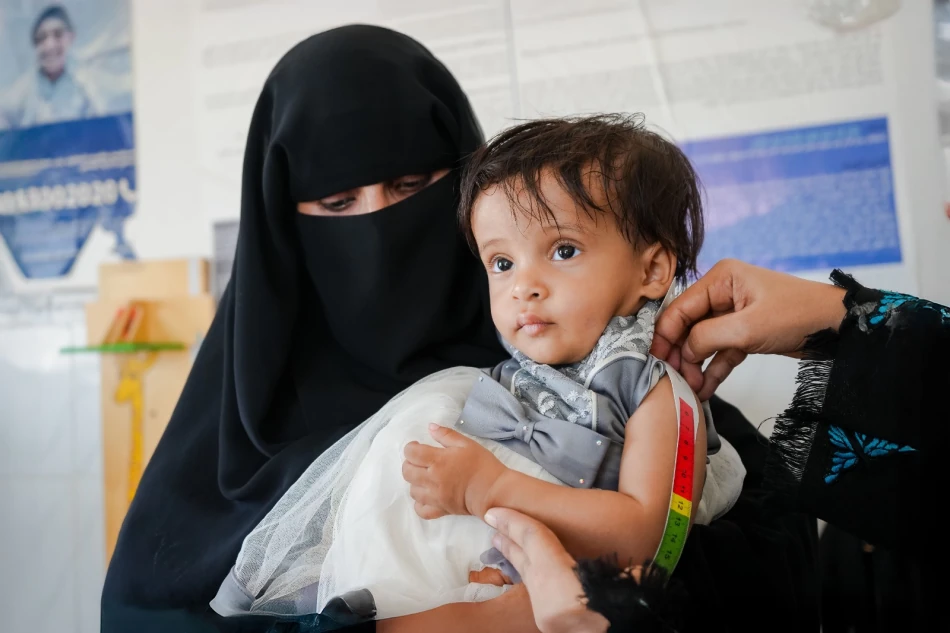
Empowering Nourishment: UAE and WHO Conclude Phase 1 of Initiative to Combat Maternal and Child Malnutrition in Socotra
UAE and WHO Launch Ambitious Health Initiative to Combat Malnutrition in Yemen's Socotra Island
A comprehensive joint initiative between the United Arab Emirates and the World Health Organization has completed its first phase of assessment on Yemen's remote Socotra Island, targeting malnutrition among women and children. The ambitious program aims to reduce mortality rates linked to poor health and nutrition by 20% over the next two to five years, representing one of the most significant humanitarian interventions in the strategically important archipelago.
Comprehensive Assessment Reveals Health System Gaps
The initial assessment phase, which began in late May, has surveyed 93% of targeted health facilities across 38 areas in 29 sub-districts of Socotra Island—exceeding original targets. Field teams collected data from 4,214 households and conducted over 930 interviews with healthcare providers, demonstrating the scale and thoroughness of this intervention.
The assessment included anthropometric measurements of children and mothers, 12 focused group discussions with various community segments, and 15 detailed interviews with local Yemeni authorities, donor agencies, and UN organizations. Additionally, 546 interviews with beneficiaries were conducted to gather feedback for continuous service improvement.
Strategic Importance of Socotra Island
Socotra Island, a UNESCO World Heritage site located in the Arabian Sea, has been largely isolated from Yemen's devastating civil war but faces significant healthcare challenges. The island's remote location and limited infrastructure have created a healthcare crisis that requires sustained international intervention.
The UAE's involvement through the Khalifa bin Zayed Al Nahyan Foundation for Humanitarian Work, part of the Zayed Humanitarian Legacy Foundation, reflects the country's broader strategy of projecting soft power through humanitarian aid in the region. This approach has been particularly evident in Yemen, where the UAE has maintained a complex political and military presence.
Multi-Phase Implementation Strategy
Evidence-Based Planning
The current data review and analysis phase will produce a comprehensive report on maternal and child health status and nutrition conditions across Socotra. This scientific approach aims to assess healthcare facility readiness and emergency response capabilities, ensuring that interventions are tailored to actual needs rather than assumptions.
Upcoming Phases
Future phases will include procurement and distribution of medical and non-medical supplies, implementation of health awareness activities, and sustainable interventions targeting the most vulnerable populations. The program's two-to-five-year timeline suggests a commitment to long-term capacity building rather than short-term relief.
Regional Context and Implications
This initiative comes as Yemen continues to face one of the world's worst humanitarian crises, with widespread malnutrition and collapsed healthcare systems. The focus on Socotra Island is particularly significant given its strategic location along major shipping routes and its unique biodiversity.
The UAE's humanitarian engagement in Socotra also serves geopolitical interests, as the island's position could influence control over sea lanes connecting the Arabian Peninsula to the Horn of Africa. By investing in healthcare infrastructure, the UAE is building goodwill while establishing a sustainable presence in this strategically important location.
Measuring Success in a Complex Environment
The program's ambitious target of reducing mortality rates by 20% will require sustained commitment and careful monitoring. Success will depend on coordination between international organizations, local authorities, and community leaders—a challenging task in Yemen's fragmented political landscape.
The comprehensive assessment approach, involving multiple stakeholders and extensive data collection, suggests a professional methodology that could serve as a model for similar interventions in conflict-affected regions. However, the ultimate test will be whether this initiative can deliver measurable improvements in health outcomes for Socotra's vulnerable populations over the coming years.
Most Viewed News

 Sara Khaled
Sara Khaled






